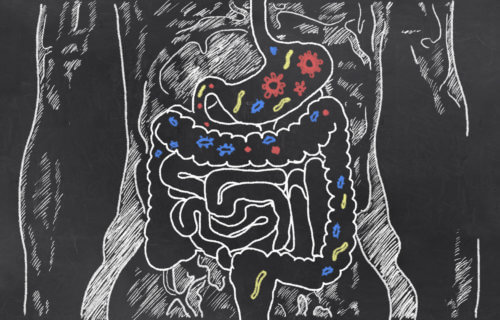SEATTLE, Wash. —Trying to lose weight? Regardless of how much you exercise, how many pounds you lose may come down to the makeup of your gut bacteria. A new study finds a person’s microbiome influences their ability to lose weight.
The discovery opens the door to the development of dietary products, like yogurts, which can get your gut bacteria in line. Researchers say that the prebiotics and probiotics would burn more calories.
“Your gut microbiome can help or cause resistance to weight loss,” says study lead author Dr. Christian Diener of the Institute for Systems Biology in a statement per South West News Service. “This opens up the possibility to try to alter the gut microbiome to impact weight loss.”
The key is identifying the most beneficial microbes and metabolic processes.
“By understanding which microbes and metabolic processes help promote weight loss in the gut microbiome, we can begin to design targeted prebiotic and probiotic interventions that might push a weight-loss resistant microbiome to look more like a weight-loss permissive microbiome,” adds corresponding author Dr. Sean Gibbons in a statement.
Probiotics are living strains of good bacteria. Prebiotics are plant fibers that nourish these organisms. In terms of their potential impact on weight loss, the CDC estimates that more than 40 percent of American adults are obese. Being overweight raises the risk of heart attacks, strokes, diabetes, and some forms of cancer.
What’s going on inside people who can’t lose weight?
The study, published in the journal mSystems, examined 105 participants in a dieting program. Fewer than half of the participants showed consistent improvements. The analysis of blood and stool samples showed gut microbiomes from the 57 who failed to lose weight broke down starches into absorbable sugars.
Genes that help bacteria grow faster, multiply, replicate, and assemble cell walls increased in the 48 people who successfully lost weight during the dieting program. The Institute for Systems Biology team also discovered microbes were primed to deal with a more inflamed environment.
“Our results underscore the fact that our gut microbiome is an important filter between the food we consume and our bloodstream,” Dr. Diener explains in a media release. “Weight loss may be especially hard when our gut bacteria slow their own growth, while also breaking down dietary fibers into energy-rich sugars that make their way into our bloodstream before they can be fermented into organic acids by the microbiota.”
Importantly, the results remained constant after taking into account BMI (body mass index) at the outset – along with other factors such as age and gender. Specific bacteria, Prevotella and Bacteroidetes, appear to be most efficient at fueling good bacteria. Moreover, these organisms helped convert sugars into short-chain-fatty-acids – reducing fiber-degrading proteins and improving metabolic health.
“At a minimum, this work may lead to diagnostics for identifying individuals who will respond well to moderate healthy lifestyle changes, and those who may require more drastic measures to achieve weight loss,” Dr. Gibbons says.
Losing weight may be all about your gut health
Previous research has shown changing your diet may alter the composition of gut bacteria. If someone’s DNA confers resistance to weight loss, then it could be possible to shift it.
“Before this study, we knew the composition of bacteria in the gut were different in obese people than in people who were non-obese,” explains Dr. Diener. “But now we have seen that there are a different set of genes that are encoded in the bacteria in our gut that also responds to weight loss interventions.”
“The gut microbiome is a major player in modulating whether a weight loss intervention will have success or not,” the researcher concludes. “The factors that dictate obesity versus non-obesity are not the same factors that dictate whether you will lose weight on a lifestyle intervention.”
South West News Service writer Mark Waghorn contributed to this report.
